Ever since wanting to set foot in Russia and researching the many cities and regions it has to offer, I had always wanted to visit Volgograd. This unassuming city, far to the south of Moscow or St. Petersburg, is way off course for those visiting the country’s main sites, and not a single other tourist was to be found wandering its streets for the few days I was there. Few have heard of the city at all, and even fewer pay it a visit.
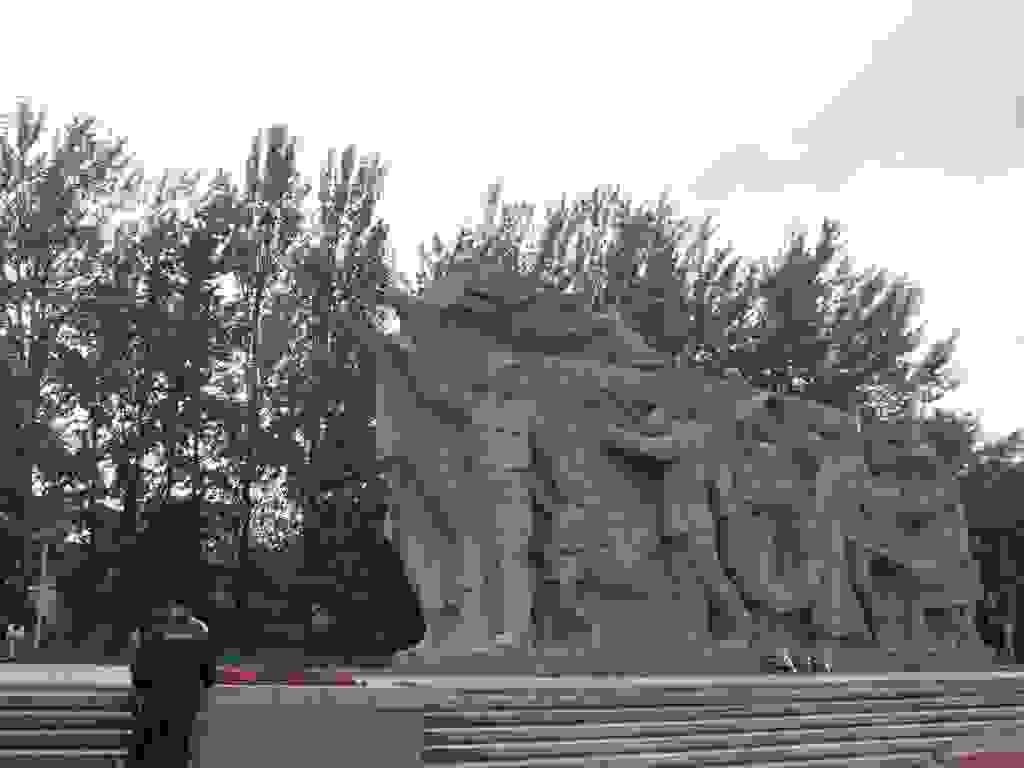
But Volgograd was once known by a different name, and its historical significance is wrapped up in its former title. This city was once Stalingrad, and was home to the bloodiest battle in human history.
World War II was not kind to Russia, and to this day the scars are still visible. Entire cities were destroyed in the conflict, and approximately 20 million Russians lost their lives during the war, while another 10 million from other former Soviet states died as well. Countless works of art were looted, and many priceless monuments were destroyed. The damage permanently altered the country, its people, and the course of the 20th century.
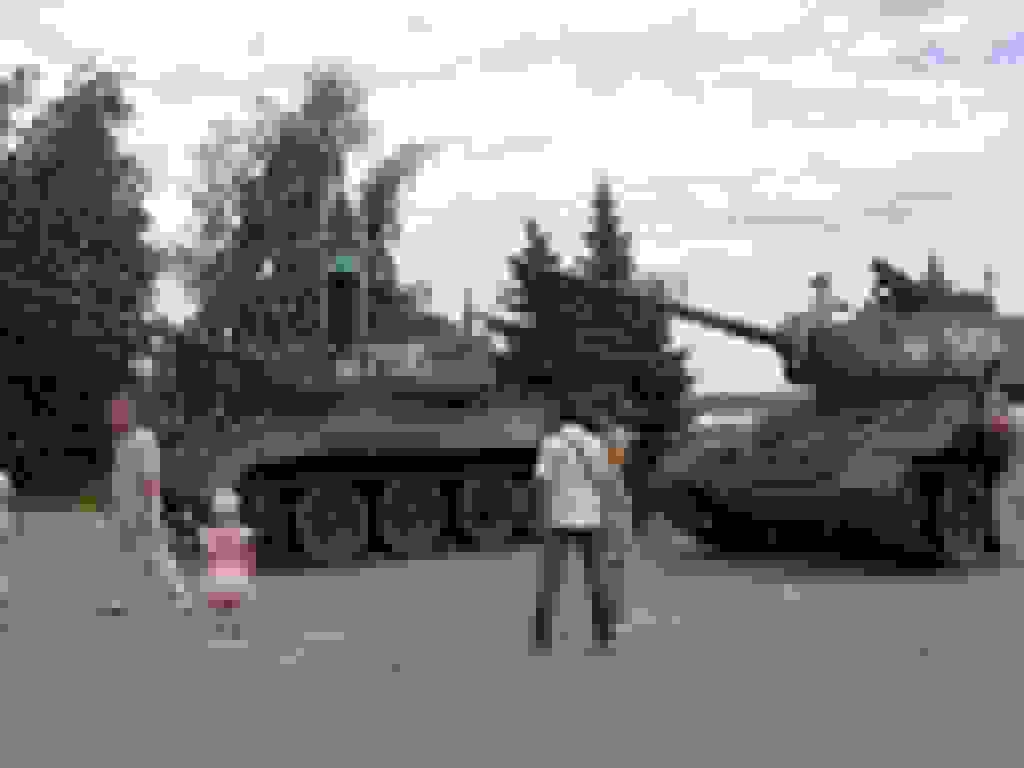
Perhaps no other site immortalizes this conflict better than Stalingrad. The entire city was completely destroyed in the conflict. Fighting raged endlessly in the streets, with soldiers battling each other, room by room, floor by floor, throughout every building of the city, for nearly six months. By the time the dust cleared, nearly two million people were killed, missing, or wounded.
But for all its destruction, Stalingrad marked a turning point in the war. After a year of humiliating and painful defeats, during which the German forces had advanced all the way to the suburbs of Moscow and Leningrad, the Soviet forces delivered a crippling defeat that stopped the German invasion in its tracks, from which they would never fully recover. The Germans won no further strategic victories in Soviet territory, and the Red Army began the rapid sprint toward Berlin.
Stories of heroism abound. Civilians took up arms against the intruders. An all-female volunteer force held off an early tank intrusion with anti-aircraft weapons. Factory workers manufactured tanks within the city, then drove them off the factory floor and right onto the battlefield.
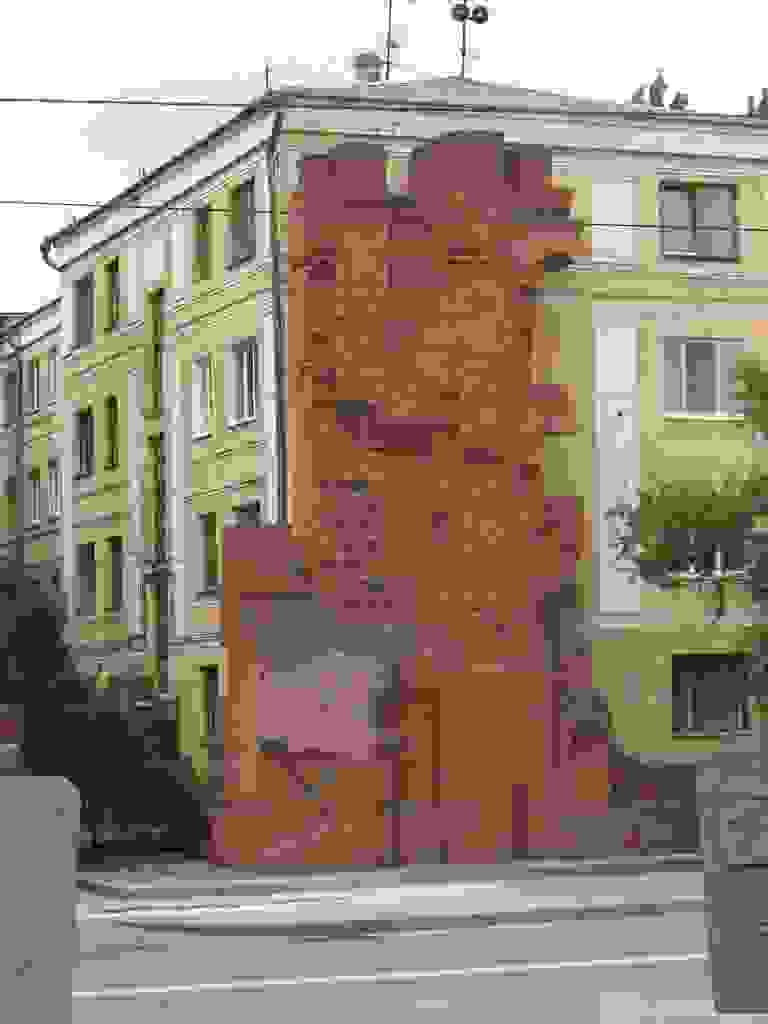
Most famous, though, is the story of Pavlov’s House, an unassuming apartment building that happened to occupy a significant strategic position. Yakov Pavlov, a low-ranking officer who happened to be in command of his platoon due to the death of the senior officer, was ordered to take the building and defend it from German attack. Pavlov and his few dozen men surrounded the building with barbed wire, positioned machine guns throughout, dug a tunnel for supplies, and slept on beds of wool insulation blankets torn off the water pipes. German soldiers and tanks attacked continuously for two months, but lost so many soldiers that Pavlov’s men had to run outside to knock over the piles of corpses so they would not offer cover to attacking soldiers. German maps marked the spot as a fortress. A Russian general would later joke that the Germans lost more soldiers trying to take Pavlov’s House than they lost taking Paris. It remains one of the most famous Russian stories of the war.
But the memorial complex is where it really hits home.
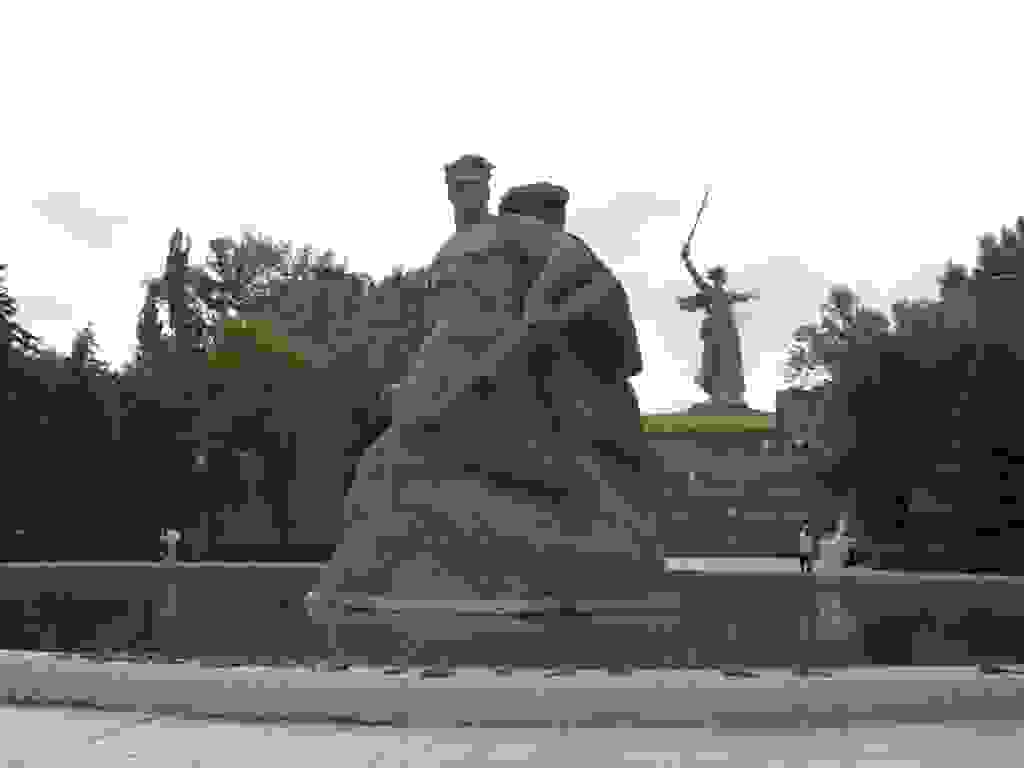
In a country filled with war memorials, the monuments commemorating Stalingrad are extraordinary. The massive statue that is the city’s most iconic monument stands on a hilltop that was home to some of the battle’s bloodiest combat, and is visible for miles around. Rodina Mat, often translated as Mother of the Motherland, is unforgettable.
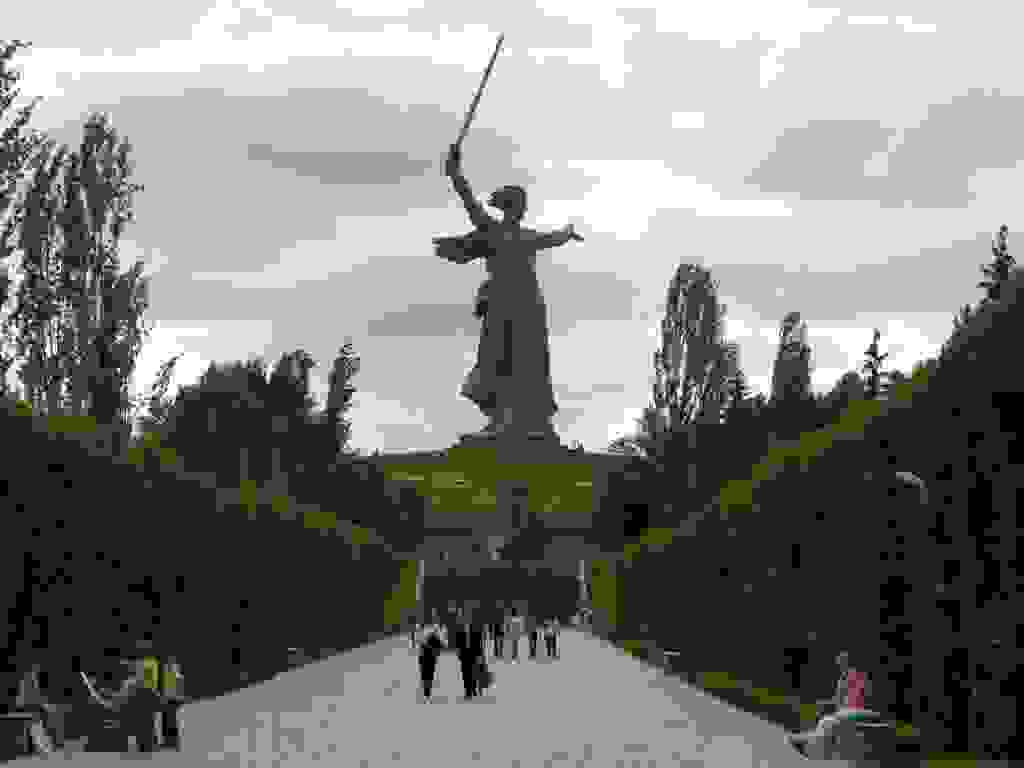
Visiting the Stalingrad monuments may have been the most memorable part of my visit to Russia. Being hosted by a gracious Couchsurfer family (whose daughter signed up for the service, forgot about it, then got a message from me and had to tell her parents they were hosting someone the next night) reminded me of just how close Russians still feel to World War II. Many of them walk by these monuments every day, and to them, it’s not just history, but identity.
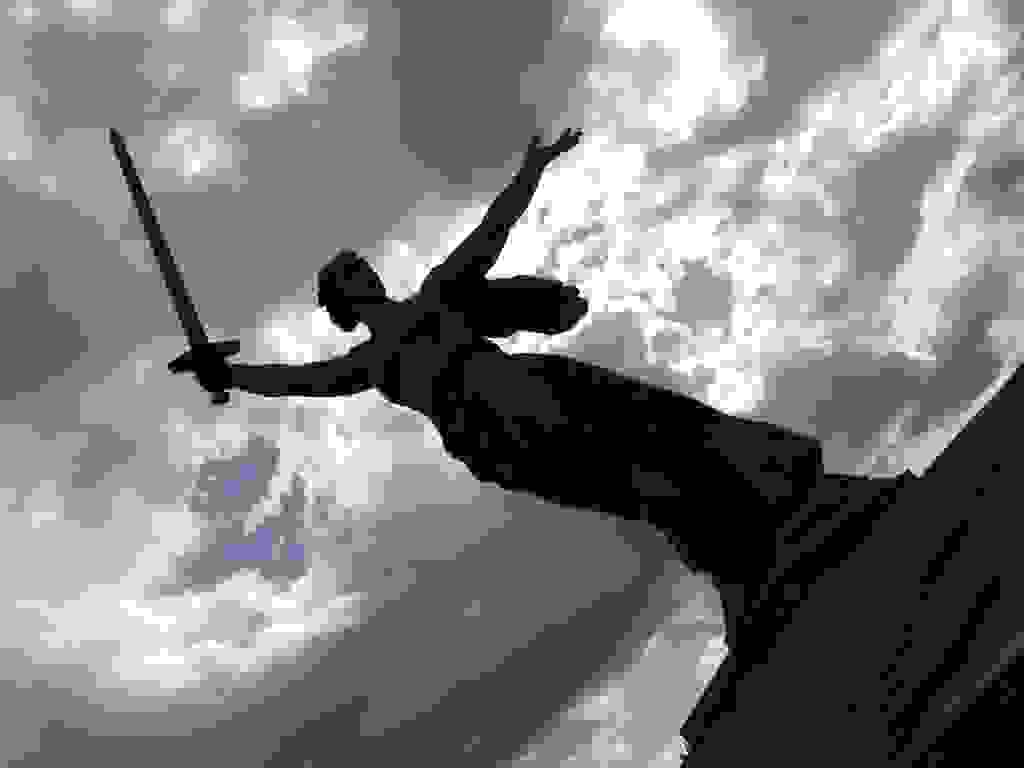
So it comes as no surprise that many Russians are still rather sensitive to the war––particularly when it comes to the question of who contributed more. To them, they suffered the greatest loss of life in human history, and brought down the world’s worst dictator. Russia suffered the greatest destruction, and delivered the fatal blow.
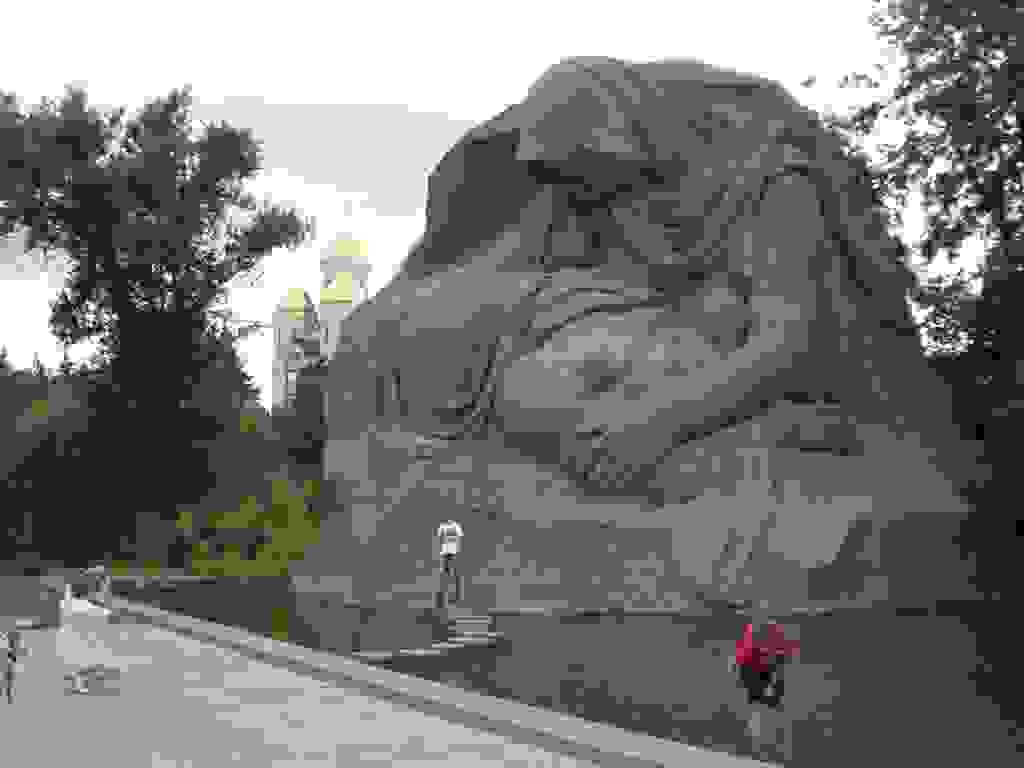
But to many others––particularly Americans––the story is quite different. We learn about D-Day, Pearl Harbor, the Battle of the Bulge, Iwo Jima, and other conflicts in which we participated. Few Americans have heard of Stalingrad, Leningrad, Kursk, Brest, and others. It’s no wonder we feel a little differently. We learn that Hitler conquered Europe, then we went over and saved them.
Though I consider the struggle by no means a competition, the numbers are pretty clear. The war along the Eastern Front was the bloodiest in human history, resulting in the deaths of 30 million people, and where Soviet forces defeated approximately 5 million Axis soldiers. In the West? 1 million. It was a team effort, certainly, but one in which the Soviet Union did 80% of the fighting.
This was my last stop in Russia, and certainly the most meaningful. I’ve always felt history is a critical part of why I travel, and experiences like this one should be part of a shared human experience, not a locally contained memory. Learning only the history of one’s own racial group or home country is understandable, but so unfortunate. This is our world, and our shared experience. Living as though we’re all in this together is what’s going to move us forward.
And seriously…I mean, look at this thing. It’s awesome.
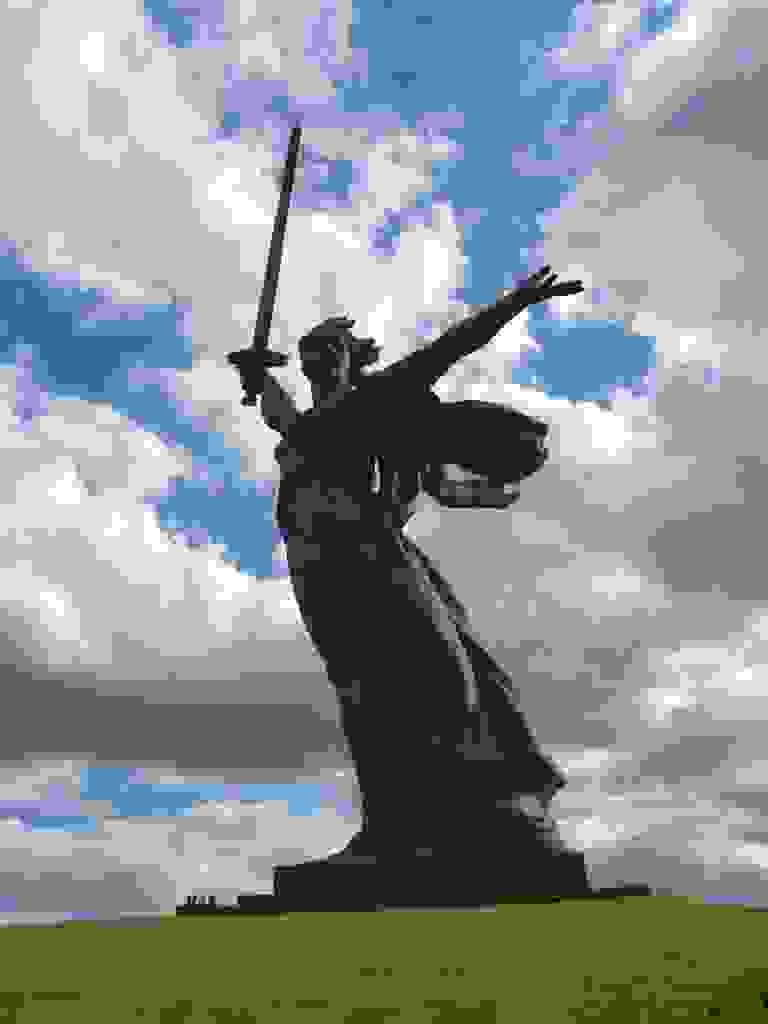
Take that, Nazis.

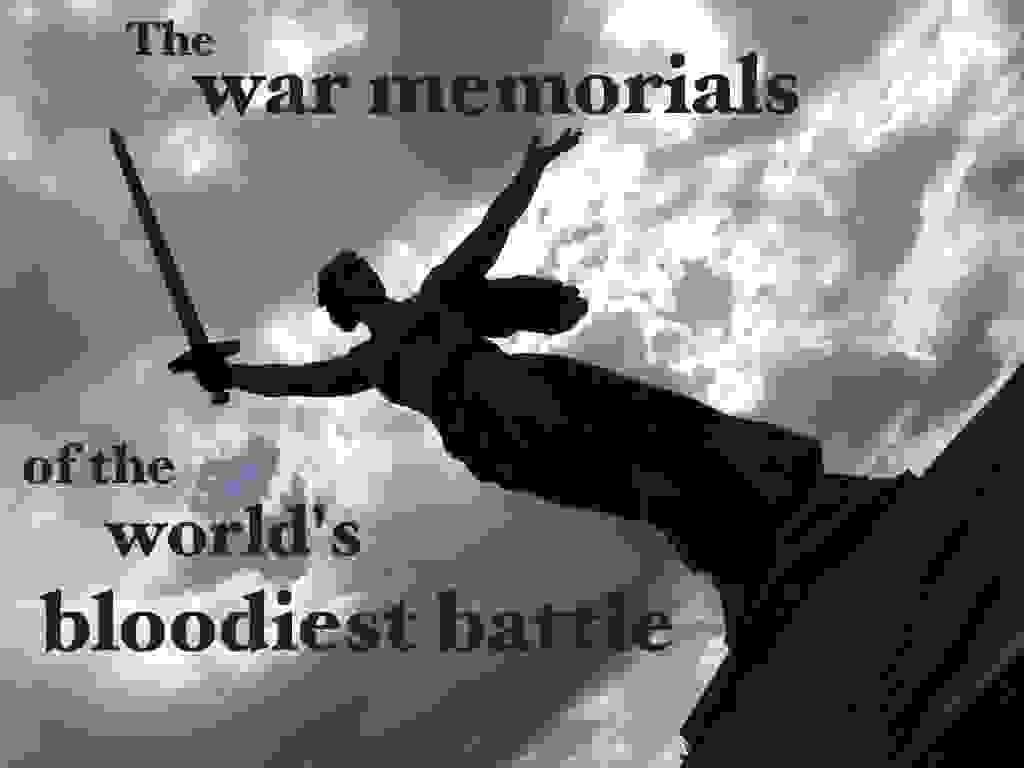



I’m jealous of your visit to Stalingrad. It’s one of my dreams to visit that place.
It was too far of my travel route when I was crossing Russia from west to east but I will definitely visit one day. I’m highly interested in military history and visited many museums and historical sites all over the former Soviet Union states and in the pacific.
I too dislike the “America saved the day” attitude most Americans have.
Great article. keep em’ coming
I, too, cringe at the American media’s single-minded attitude that we won the war almost single-handedly. I highly recommend Alexander Werth’s “Russia At War” an on the scene history of the war in the east by an American journalist. The beauty of Werth’s book is that he cannot be accused of being a communist sympathizer since his family were White Russians chased out of the USSR by the regime shortly after the revolution. Werth spoke fluent Russian and spent the war with the Russian army.